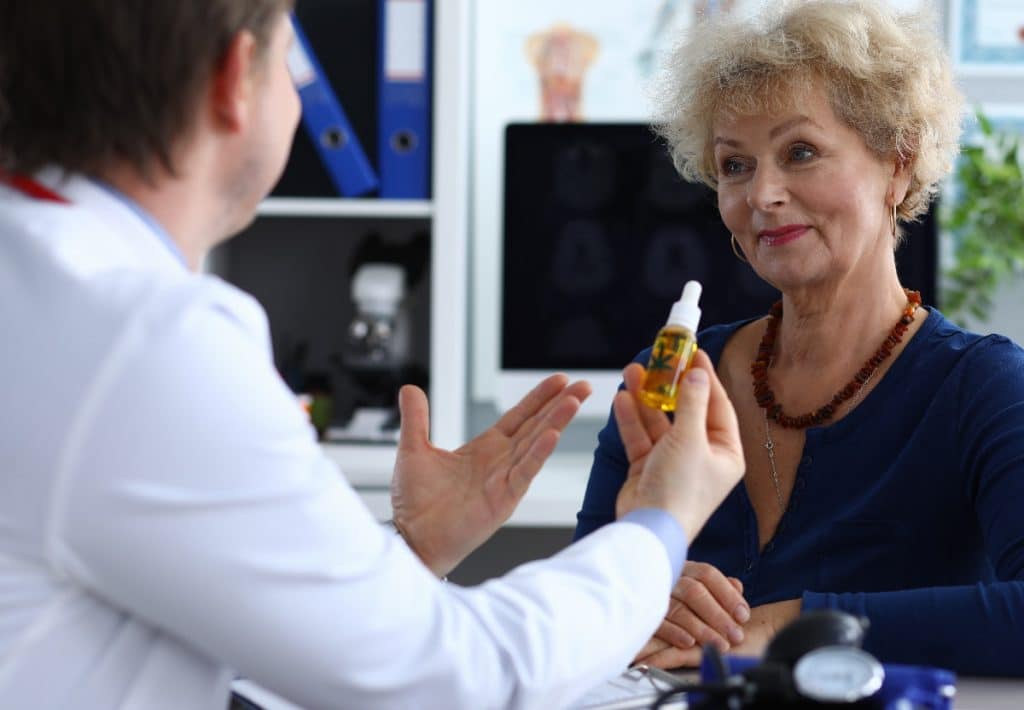More Precise and Frequent Chemical Analysis of Cannabis Strains is Required in Order to Create True Personalized Treatment

One of the challenges of administering and taking medical cannabis, is the difficulty determining the specific panel of cannabinoids, terpenes and flavonoids. There is a great deal of variation even between cannabis preparations from the same strain. This article reviews the different methods for cannabinoids quantification, which is the process of analysis of the composition of cannabis products, and points out the ones which have proven most efficient and most accurate.
Athletes may be able to use Cannabis for thaerpeutic uses, without being banned

It’s standard for professional athletes to be tested for cannabis use, but does cannabis enhance physical capacity? Perhaps it impairs it? This review suggests neither. Researchers found no significant difference in athletic performance between chronic recreational cannabis users and non-users. Meaning, it is possible that athletic aptitude is not affected by cannabis use. Cannabis users can rest assured that physical activity will not be affected, and this could mean good news for professional athletes too: If future studies indicate that cannabis doesn’t affect athletic capabilities and official sport organizations stop its prohibition, then athletes could begin using it for therapeutic purposes.
Higher CBD with minimal THC: a formula for alleviating Anxiety?

Does cannabis cause anxiety or does it in fact alleviate it? That depends on which active component is being used. Several small scale human trials have consistently found CBD was able to alleviate anxiety and to restrain the anxiogenic effects of THC. Further studies could confirm whether medications which contain a higher CBD:THC ratio (meaning, include more CBD than THC) could provide a solution to those struggling with anxiety.
New Fibromyalgia Study: 80% of Patients Reporting Moderate to Significant Improvement

Medical cannabis therapy can lead to a considerable improvement in Fibromyalgia patients’ lives. In this study, patients were treated with medical cannabis as adjunctive therapy. After 6 months of treatment, 80% of responders reported a moderate to significant improvement in pain levels. Along with pain relief, patients reported an improved quality of life, sleep and depression. Cannabis may present an optional therapy for the symptoms of Fibromyalgia especially when other treatments have failed. Moreover, it can provide added safety to patients due to its low rate of adverse effects and the fact that it is less addictive in comparison to other analgesics.
Medical Cannabis for the Elderly: Safe, Therapeutic and Cost Effective

With medical cannabis being recognized as an effective analgesic, its use by the elderly is becoming more common. This study reviews adverse events induced by medical cannabis treatment among people over the age of 65. Adverse events were limited and well tolerated by study participants and included drowsiness, dizziness and gastrointestinal side effects. Interestingly, despite episodes of dizziness patients have reported a decreased number of falls after starting treatment with medical cannabis. Moreover, the vast majority of patients have stopped taking chronic pain medications or reduced the dosages for medications they have used prior to the study.
A smalll Price to Pay for Pain Relief: Drowziness, dry mouth and dizziness

Is Medical Cannabis safe? This study suggests it is. Much like with any other medicine some side effects are to be expected, when using Medical Cannabis. some examples of said side effects are drowsiness, dry mouth and dizziness. While such events may be unpleasent, they can be a small price to pay for pain relief and an increased quality of life. This study finds Cannabis to rarely have severe side effects and for other side effects to be mostly tolerable. In this study, patients maintained cognitive ability over 1 year, as well as pulmonary, liver, renal and endocrine functions. A conservative treatment of 2.5 g/d may induce pain relief while keeping patients safe.
New Study: Over 30% Decrease in Pain Levels, Lower BMI and Lower Depression Scores

Medical cannabis is known to relieve neuropathic pain and according to a new study could be effective for other non-cancer conditions as well. This study has identified positive predictive factors for treatment success such as normal to long sleep duration, lower BMI and lower depression scores. Other than these new findings, researchers have found evidence for known effects of medical cannabis which have improved patients’ quality of life not just by pain reduction, but also by reducing anxiety, disability and opioid dependency.
More Than Two-thirds of Healthcare Providers Prescribing Cannabis Recommended it as a Substitute to an existing prescription drug

According to recent study by BMC, in the absence of formal clinical guidelines on dosing, interactions and titrations, healthcare providers who recommend the medical use of cannabis appear to be self-generating a community standard of practice. Interestingly, 73% of patients in the study were reported as naive.
Big Pharma Companies are Lagging Behind in Owning Customer Data

Medical Cannabis may be a safer entry for big pharma companies looking to compete on owning valuable healthcare data

